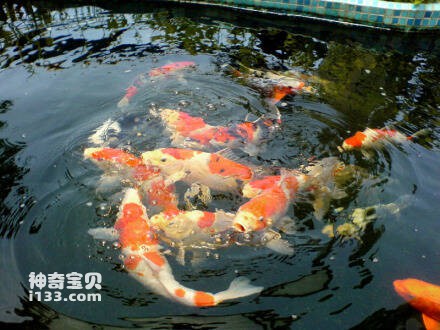
Cyprinus carpio
Cyprinus carpio
Features:Physical fitness, colorful, changeable pattern, swimming style
Koi (Cyprinus carpio haematopterus) is a kind of high-grade ornamental fish popular in the world today, and has the reputation of "living gems in the water" and "art that can swim".Koi is an omnivorous fish. It can be eaten by mollusks, fragments of higher aquatic plants, benthic...
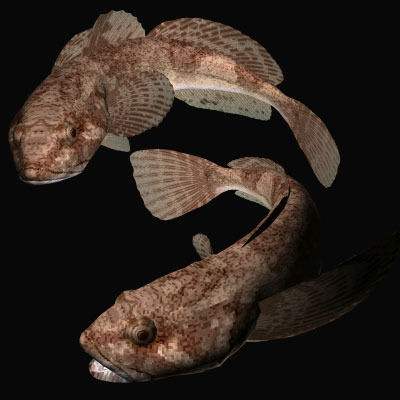
Trachidermus fasciatus
Trachidermus fasciatus,Four-gilled perch, flower drum fish, wife fish
Features:Looks like a tadpole
Songjiang perch (scientific name: Trachidermus fasciatus) is a fish of the family Sculpinidae and the genus Trachidermus, with no subspecies.Because the production of Songjiang near the mouth of the Yangtze River in China is relatively high and the body is relatively black, it is named Songjiang per...
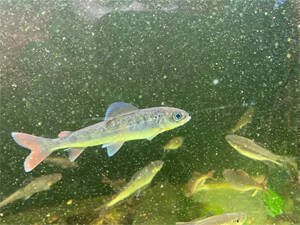
Thymallus yaluensis
Thymallus yaluensis, speckled trout
Features:There is a large red or yellow spot on the center of the body and the caudal peduncle, and 85 to 96 scales on the lateral line.
Yalu River grayling, whose Latin name is Thymallus yaluensis, is the most common grayling on the market. It has taken advantage of a loophole in the list, but it also belongs to a gray area.The Yalu River fennel and the Heilongjiang fennel have certain differences in morphology (maxilla and gill rak...
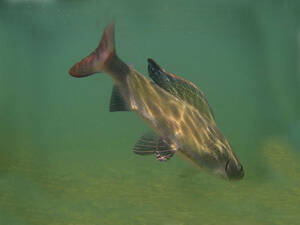
Thymallus arcticus grubei
Thymallus arcticus grubei,Amur grayling, spotted trout, redfish, sea urchins, etc.
Features:The dorsal fin is long and tall in the shape of a flag. The back and sides of the body are purple-gray, with many small dark brown spots scattered on the sides of the body.
The Latin name of Heilongjiang grayling is Thymallus arcticus grubei, and its foreign name is Amur grayling. In the Heilongjiang and Yalu River systems, Heilongjiang grayling is the main target of local fishing.Heilongjiang grayling is a cold-water fish, but unlike other cold-water fish, they live i...
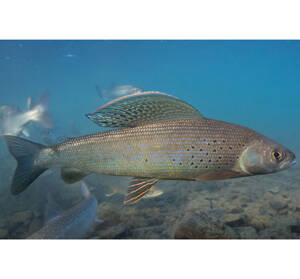
Arctic grayling
Thymallus arcticus
Features:The dorsal fin is tall, with a rounded, sail-shaped upper edge and up to 17-25 rays.
Arctic grayling (scientific name: Thymallus arcticus): is an animal of the family Thymallus and genus Thymallus.Arctic grayling may move tens of kilometers seasonally or annually between spawning, feeding, and sheltering habitats. Some Arctic grayling are known to travel more than 160 kilometers in...
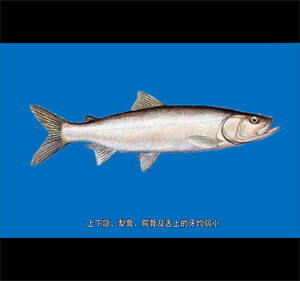
Stenodus leucichthys nelma
Stenodus leucichthys nelma,Whitefish, Whitefish
Features:Similar to salmon, but with underdeveloped teeth, a small mouth, large round scales, dark grey back and white belly.
Stenodus leucichthys nelma belongs to the genus Stenodus of the family Salmonidae in the order Salmoniformes. In my country, it is mainly distributed in the waters below Burqin in the Irtysh River in Xinjiang. In the 1960s, it was the main target of fishing in the Irtysh River.In the lower reaches o...
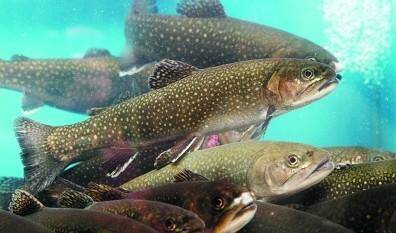
Salvelinus malma
Salvelinus malma,Hanazato Yoshiko
Features:Can go without food for almost a year
Salvelinus malma is a fish of the genus Salmonidae, with a body color ranging from brown to gray. The malma trout has a wide diet, mainly benthic animals (mainly mollusks) and insects that fall into the water, and sometimes even jumps out of the water to prey.There are two types of char: landlocked...
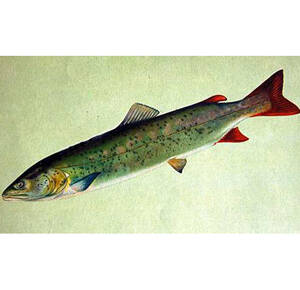
Hucho taimen
Hucho taimen,Zheluo fish, Taimen salmon, Zheluo green fish (Northeast China), big red fish (Xinjiang)
Features:It is one of the most ferocious freshwater fish.
Taimen (scientific name: Hucho taimen) is a cold-water carnivorous freshwater fish of the family Salmonidae and the genus Hucho.Taimen spends most of its time in fast-flowing streams, hibernates in deeper waters such as major rivers and lakes in winter, and migrates to streams in spring to spawn. Ta...
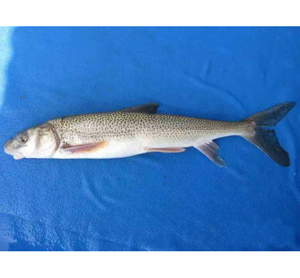
Hucho bleekeri
Hucho bleekeri,Sichuan Taimen, Bailey Taimen, Tiger Fish, Catfish
Features:It is the only surviving Taimen salmon on the Qinghai-Tibet Plateau.
The Latin name of Sichuan-Shaanxi Taimen is Hucho bleekeri. It is the southernmost (29-33°N) species among the five Taimen species in the world.Sichuan-Shaanxi Tailer is a cold-water fish that likes to live in deep river bays and flowing water environments, with gravel or sandy bottoms and mountain...
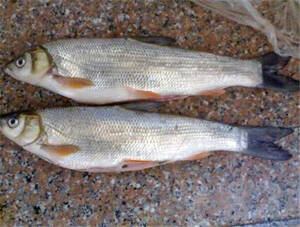
Brachymystax lenok(Pallas
Brachymystax lenok(Pallas,Qinling Slimy Salmon
Features:It is a remnant species that migrated from the north to the south during the Ice Age.
Brachymystax lenok (Pallas,) is a relic species that migrated from the north to the south during the Ice Age and is a cold-water foothill fish.Brachymystax lenok feeds actively all year round. It mainly feeds on invertebrates, small fish, etc., and also preys on frogs and small rodents. It is extrem...
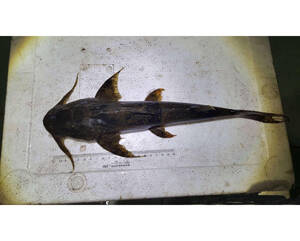
Bagarius yarrelli
Bagarius yarrelli,Eagle tank, tank duckbill, eagle duckbill, papaya fish
Features:One of the most powerful fish in the order Siluriformes
The Latin name of the giant yarrelli is Bagarius yarrelli, which belongs to the order Siluriformes, family Scyphidae, and the genus Scyphus.The food is mainly small fish. It is slow-moving and greedy, and can be caught with a dragnet or sinking hook. Individuals are large, weighing more than 50kg. T...
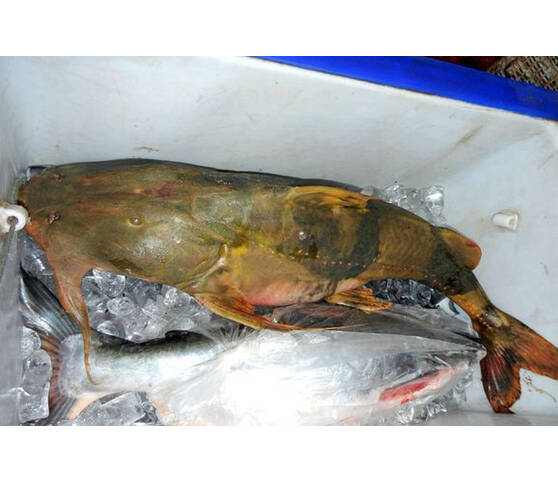
Bagarius rutilus
Bagarius rutilus
Features:The name comes from the orange color of its pectoral fins, which resembles a giant bream in appearance.
The name of the red mullet comes from the orange color on its pectoral fins, not because it is produced in the Red River.The red mullet is ferocious and predatory. It mainly feeds on small fish, frogs and shrimps. It breeds around May to June.The biggest difference between the red catfish and the gi...
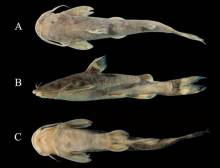
Bagarius bagarius
Bagarius bagarius,Yellow croaker, yellow croaker
Features:The head and front of the body are particularly thick and flat, with the dorsal margin at the starting point of the dorsal fin being the highest point of the body and gradually decreasing in depth. The caudal peduncle is round and the ventral surface is flat.
The Latin name of the fish is Bagarius bagarius, which is one of the species of the genus Bagarius in the family Siluridae of the order Siluriformes of the class Actinopterygii. It is commonly known as the melon fish.The fish is a carnivorous fish, fierce and predatory. It feeds on mollusks and smal...
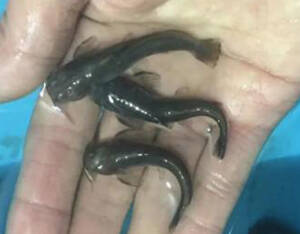
Glyptosternum maculatum
Glyptosternum maculatum,Stone flat head
Features:The body surface is smooth and scaleless, the body is elongated, and the ventral surface is flat
It is the species with the highest distribution altitude among the family of fish, and can be found in waters with an altitude of about 4,500 meters.The black-spotted yao mainly lives in rock crevices and feeds on insect eggs or young fish. The number of chromosomes of the black-spotted protist is 2...
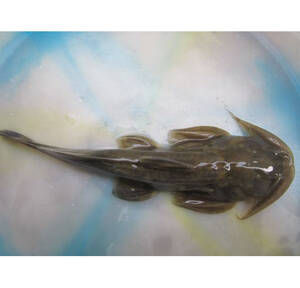
Euchiloglanisdavidi(
Euchiloglanisdavidi(, Stone Climber
Features:The body is elongated, the head is flat, and the length of the head is about the same as the width of the head
The Latin name of the bluestone catfish is Euchiloglanisdavidi (Sauvage, 1874), which is a fish of the genus Euchiloglanis of the family Euchiloglanidae.The bluestone catfish is a freshwater bottom fish. It is not very active and lives in the caves of rapids, clinging to the stone with its suction c...
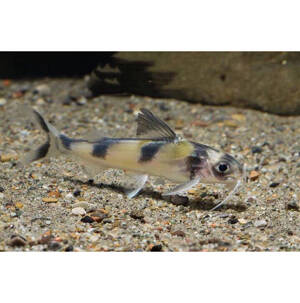
Gagata dolichonema
Gagata dolichonema
Features:The body is long and flat, with narrow dorsal side and wide and flat head and trunk ventrally. The head is flattened laterally and the bone ridges are covered with thin skin.
Latin scientific name of filament black HeiGagata dolichonema,<span style ="background-color: rgb(255, 255, 255); color: rgb(51, 51, 51); font-family: "Helvetica Neue", Helvetica, Arial, "PingFang SC", "Hiragino Sans GB", "Microsoft YaHei", "WenQu...
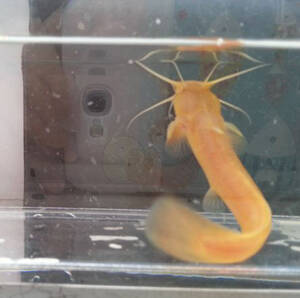
Liobagrus kingi
Liobagrus kingi
Features:The adipose fin is connected to the caudal fin with a notch in the middle
King's mullet (Liobagrus kingiTchang,1935) is an animal of the genus Liobagrus in the family Amblycephalus.King's mullet is a small fish that likes flowing water and mainly feeds on aquatic insects and small fish and shrimps.Listed in the second level of the "List of National Key...
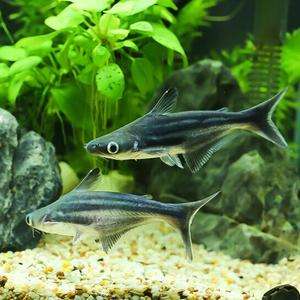
Pangasius sanitwongsei
Giant catfish, Genghis Khan fish
Features:It can grow up to 300 cm long and weigh 300 kg, making it one of the largest catfish in the world.
The Genghis Khan fish is a native fish species of the Mekong and Chao Phraya rivers in Southeast Asia. It is a large carnivorous fish and the most ferocious fish in the entire Mekong and Chao Phraya rivers. It mainly feeds on crustaceans and fish. They are migratory. They usually spawn before the mo...
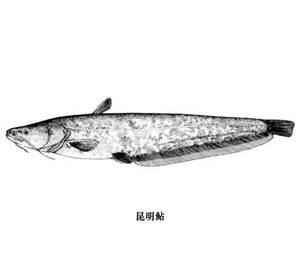
Silurus mento
Silurus mento,Kunming-lakecatfish,Dianchi catfish
Features:The body is light yellow, the abdomen is grayish white, and there are irregular spots on the sides of the body.
Kunming catfish (scientific name: Silurus mento), foreign name Kunming-lakecatfish, belongs to the genus Silurus of the family Siluridae of the order Siluriformes, and is endemic to China.Kunming catfish is a carnivorous fish that likes to live in lakeshores with abundant aquatic plants. It hides at...
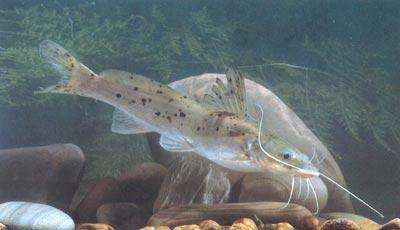
Mystus guttatus
Mystus guttatus,Sesame, plum blossom, sea bream, sesame sea bream, white-bearded sea bream
Features:Looks like a catfish, once the "king of freshwater"
Mystus guttatus is a species of the genus Mystus in the family Myscidae. It is also called shad, sesame shad, white-bearded shad, and swordfish and pliers in rural Guangdong. It is large in size, with common individuals weighing 1-2 kg, and some large ones weighing 5-10 kg, and the largest can reach...
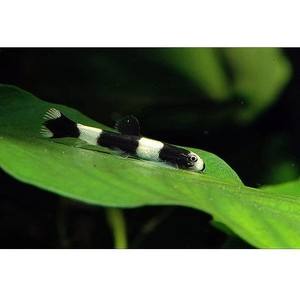
Yaoshania pachychilus
Yaoshania pachychilus,Panda fish, panda shark, golden band panda climbing rock loach
Features:Its body is distinctly black and white, like a small panda in the water.
The scientific name of the thick-lipped loach is Yaoshania pachychilus (Chen, 1980), a species of fish in the genus Yaoshania of the family Cyprinidae.Thick-lipped Protostomus was discovered by Academician Chen Yiyu in Dayao Mountain, Guangxi, China in 1980. At that time, it was classified under the...

